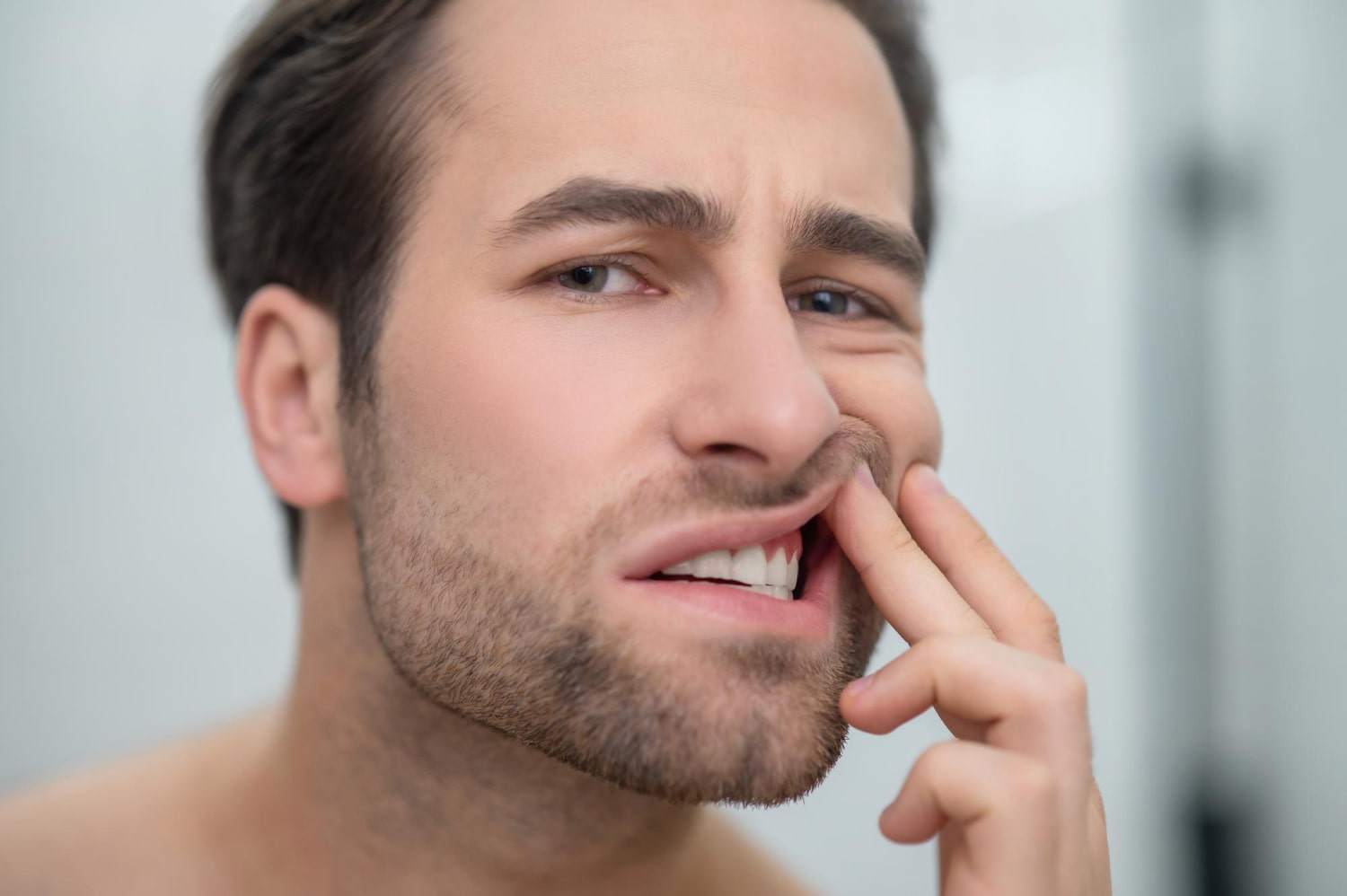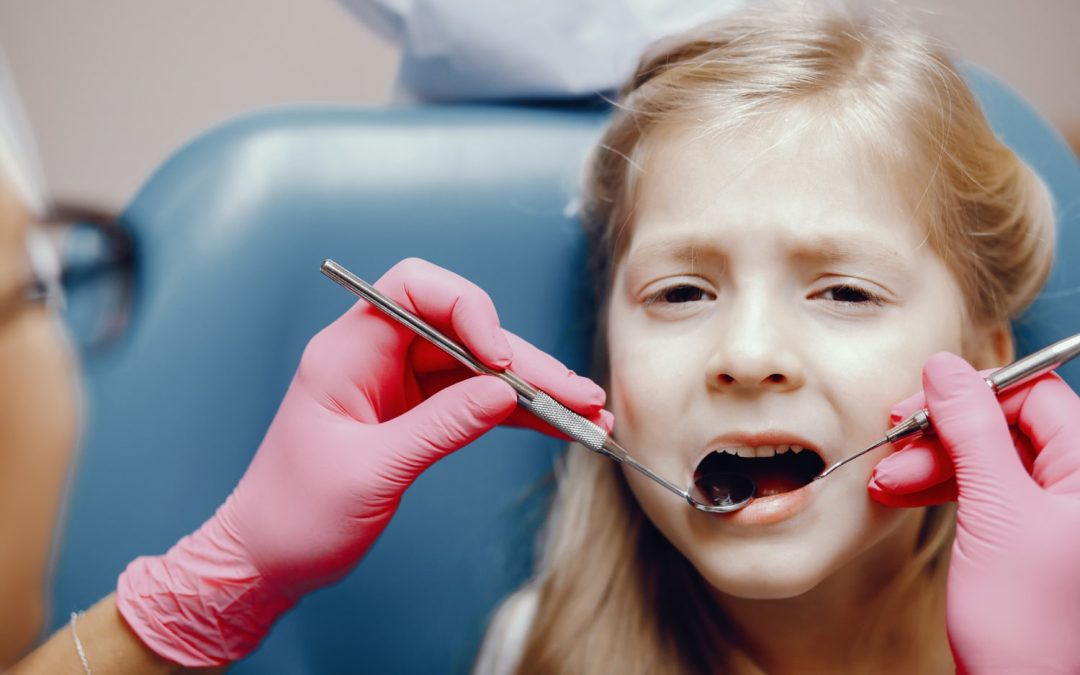Do you often wake up with a sore jaw or a headache? Or perhaps your boyfriend informs you that you grind your teeth when you are asleep? If yes, not to worry! This is a common condition called bruxism.
Most people don’t even realize they do it until a dentist points it out. And remember, ignoring it can lead to tooth damage, jaw pain, and sleep problems over time. The good news? Bruxism can be treated with the right care and guidance from the doctor.
If you live in Etobicoke, visit your local dentist in Etobicoke to figure out what’s causing it and how to stop grinding teeth at night.
What is Bruxism?
When you often grind your teeth without meaning to is called Bruxism. It majorly happens at night while you sleep; however, some people often do it during the day when they’re stressed or focused.
When you are grinding, your jaw muscles tighten and strain your teeth. This may eventually erode the enamel of your teeth and damage your jaw joints (TMJ), and even crack or chip.
So, even if you don’t notice it happening, your teeth might be showing signs that something’s off.
Symptoms You Might Be Grinding Your Teeth
If you have Bruxism, you may experience the following signs:
- A sore or tight jaw when you wake up
- Teeth that look flatter, chipped, or worn down
- Morning headaches or ear pain
- Clicking or popping sounds when you open your mouth
- Tooth sensitivity (especially to hot or cold)
- Interrupted sleep
If you’ve noticed any of these, it’s worth getting a quick check-up. Your dentist in Etobicoke can spot the signs of grinding just by looking at your teeth and jaw movement.
Causes of Teeth Grinding at Night
Bruxism does not just happen with a single cause, but it is typically a combination of both physical and emotional conditions.
1. Stress and Anxiety
When you have a bad day at work, even your jaw can be tight, even when you are sleeping. This is among the best triggers of sleep bruxism.
2. Sleep Disorders
Such illnesses as sleep apnea may make your body clench or grind trying to keep your airway open.
3. Problems with biting or misaligned teeth
When the upper and lower teeth are out of place (malocclusion), then the jaw has to make up by grinding.
4. Certain Habits
Grinding can be aggravated by substances such as caffeine, alcohol, smoking, or even chewing pens.
5. Family or Genetic Factors
Bruxism is a family affair, sometimes such that in case your parents are grinders, you are likely to be.
Knowing the cause will assist your dentist in developing a program that leads to the repair of the root of the problem, not the symptoms only.
How Dentists Diagnose Bruxism?
Curious to know how dentists diagnose bruxism? Well, it generally begins with a detailed oral examination. Here’s what your dentists in Etobicoke will do:
- Check the wear patterns on your teeth and enamel.
- Identify TMJ discomfort or limited movement.
- Examine bite misalignment or fractured restorations.
- Inquire about sleep habits, stress levels, and medical history.
In a few cases, a sleep study can be requested by your dentist to establish whether you have sleep apnea or some other problem. The degree of damage can also be determined by the use of advanced imaging tools or digital bite analysis.
NB: Because of early diagnosis, you not only protect your teeth but you can also avoid more dangerous complications such as dysfunction of the jaw muscles or chronic pain in the face.
Bruxism Treatment Options
1. Dental Treatments
- Custom Night Guards: This is a custom-fitted device that you can put on while you are asleep so that your teeth do not grind together.
- Orthodontic Corrections: For misaligned teeth, braces or aligners can assist in strengthening your bite and decreasing pressure.
- Restorative Dentistry: To restore the ductility of your worn-out or fractured teeth, crowns and veneers are the best.
2. Behavioral & Medical Therapy
- Stress Management: Relaxation techniques, e.g., yoga or cognitive behavioral therapy, can assist in jaw tension.
- Drug Modifications: Bruxism can be initiated by some medications; your health care provider can assist you with the alternatives.
- Biofeedback Therapy: This technique helps the brain to learn how to relax the jaw muscles in times of stress.
3. Make Changes in Lifestyle
- Do not take caffeine before going to bed.
- Do not bite hard things such as pens and ice.
- Having good sleep hygiene and an atmosphere of calm, dark, and cool can assist in relaxing the body.
Each of the patients is unique, thus your dentist in Etobicoke will give him/her a treatment that fits their needs and incorporates dental services with lifestyle suggestions to get long-term relief.
Why see a dentist in Etobicoke for Bruxism Treatment?
If you live in Etobicoke, visit your nearby dentist who has experience and can accurately diagnose and treat bruxism.
- Use modern diagnosis tools to detect the initial wear indicators.
- Offer tailor-made mouthguards that are comfortable.
- Give your smile some preventative and restorative attention.
- Relieve TMJ pains, tooth sensitivity, and stress-related clenching.
Early treatment reduces pain and also prevents costly dental restorations in later life. A reliable Etobicoke dental care will develop an individual treatment strategy that will suit your oral health objectives.
Common Questions People Can Ask
Q1. What do I need to do to stop grinding my teeth at night?
Restrict caffeine or alcohol at night, relax, and think of a nightguard prescribed by your dentist.
Q2. Why do we brux during the night?
It is usually associated with stress, anxiety, and sleeping disorders, and misalignment ofthe teeth bite.
Q3. How do I know if I have bruxism?
You could be having bruxism when you usually wake up with sore jaws, a headache, or when you find your teeth worn out. Go to your dentist in Etobicoke and assure.
Q4. Is teeth grinding dangerous?
Yes. Tooth fractures, loss of enamel, and dysfunction of the TMJ can also occur as a result of chronic grinding, causing continuous pain.
Conclusion
Bruxism is not as rare as one thinks it to be; nevertheless, it can be treated. Neglecting it may result in serious tooth erosion, pain in the jaw, and oral complications in the long run.
Be it stress, poor sleep, or bite problems that are causing you to grind your teeth, it is all different at early diagnosis. When you are there, you could also make an appointment with a reputable dentist in Etobicoke to have a personal assessment and to find out the best solutions to deal with bruxism.










